Amherst History Month By Month: Barn For Today
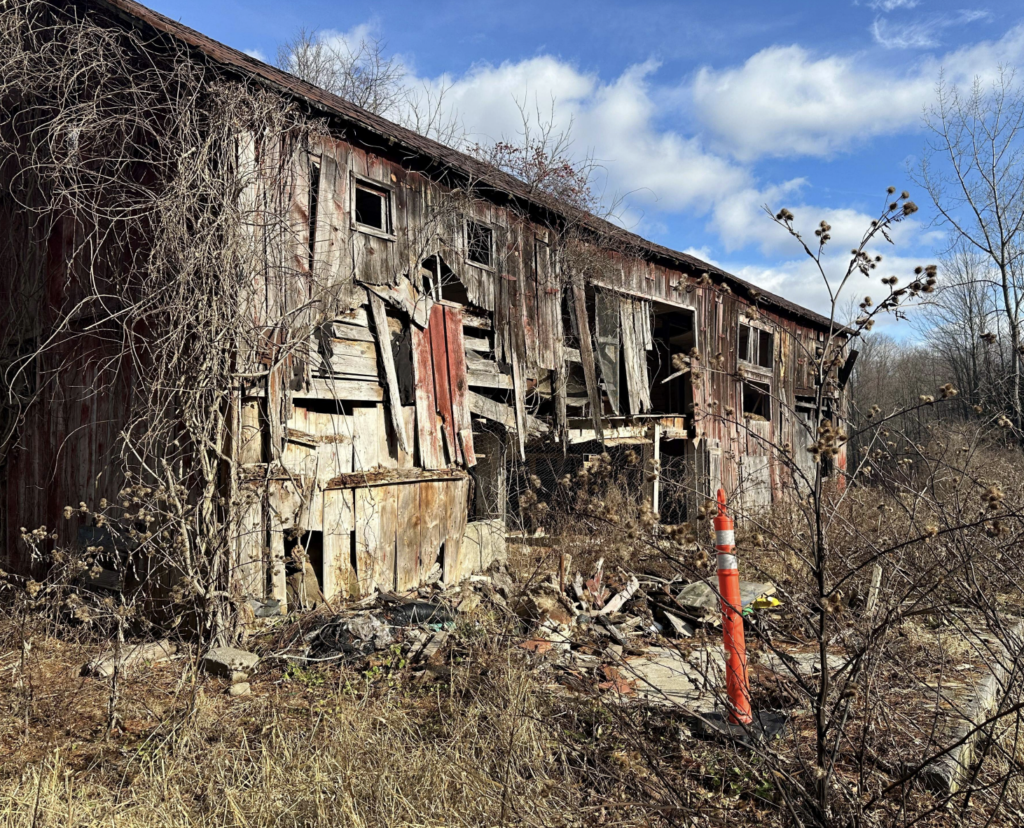
The barn of E.E. Poor at Rolling Hills Farm in South Amherst. Photo: Sabina Shelby
If you ask any photographer or artist, they may say that at some point their goal was to capture a classic New England scene by painting or photographing an old barn. Preferably a red one, perhaps with snow freshly fallen to make the color ‘pop’ and the edges of the building look crisp against all that fluffy white stuff on nearby trees. Around us in Amherst there are many types of barns especially tobacco barns as that crop was a staple in the colonial era and is still grown here.
Barns are vivid material reminders of our rural origins as a region, and of the generations of people who both built and worked in and around them. In fact, the story of barns is mostly a story of the families who owned them. Architecturally, as a building type, they date back many centuries and they are structurally quite interesting. Some of the oldest stone barns in Europe have the same timber roofing systems as churches or cathedrals. Most New England barns are made of wood and often have bays or a central aisle also reminding us of some types of religious buildings or meeting houses.
Today barns are used in animal husbandry, for storage and processing food stuffs, for square dances, weddings and corporate events, and in many other ways, are sometimes adaptively re-used for office space or housing. Barns still house tractors, cows, chickens and offer boarding for horses. Barns in good condition can sell for many thousands of dollars especially if they are tied to land or other assets. But they are among the most vulnerable buildings when it comes to historic preservation. This is partly because the owner of the main farmhouse related to a barn might of necessity need to work on the house before spending money on a barn. Over time, barns end up having deferred maintenance or, to be frank, are neglected – prompting calls for their demolition. Part of my brain resists this inevitability but I have never owned a barn, although being a preservation person I did once completely preserve a failing free-standing garage! Sometimes barns can be saved or deconstructed so that materials can be saved for new construction. The latter option is happening at Simple Gifts Farm where materials from an old and very dilapidated barn are planned for other projects such as a new pavilion structure intended for public use.
Most recently, the Amherst Historical Commission learned through a public hearing about the estate of E. E. Poor at Rolling Hills Farm in South Amherst. The owners want to demolish a barn on the property that was once a sanctuary for the Great White mute swan and “one of the most picturesque properties in Amherst” where lush meadows, a stream and ponds graced its farmhouse. The land had been bought by the owner of a New Jersey bleaching and printing company as a place that could be used for recreation by their workers. Over time, the site became a gentleman’s farm, a swan sanctuary and the summer home of the Poor family (related to the stock market Standard and Poor rather than the more generic Poor farms in many New England towns.)
The barn was one of several places on the property managed by a caretaker called Nicholas Jerald Roco, originally from Vodice, in the former Yugoslavia. Roco was a former veteran from World War I and a communicant of St. Brigid’s church. I imagine him on the farm, working hard for Edward Erie Poor, who died in 1957. The Commission voted for the demolition of the barn, and a new one, designed by Wright Builders, on the same foundation and using similar materials, will be erected there in due course.
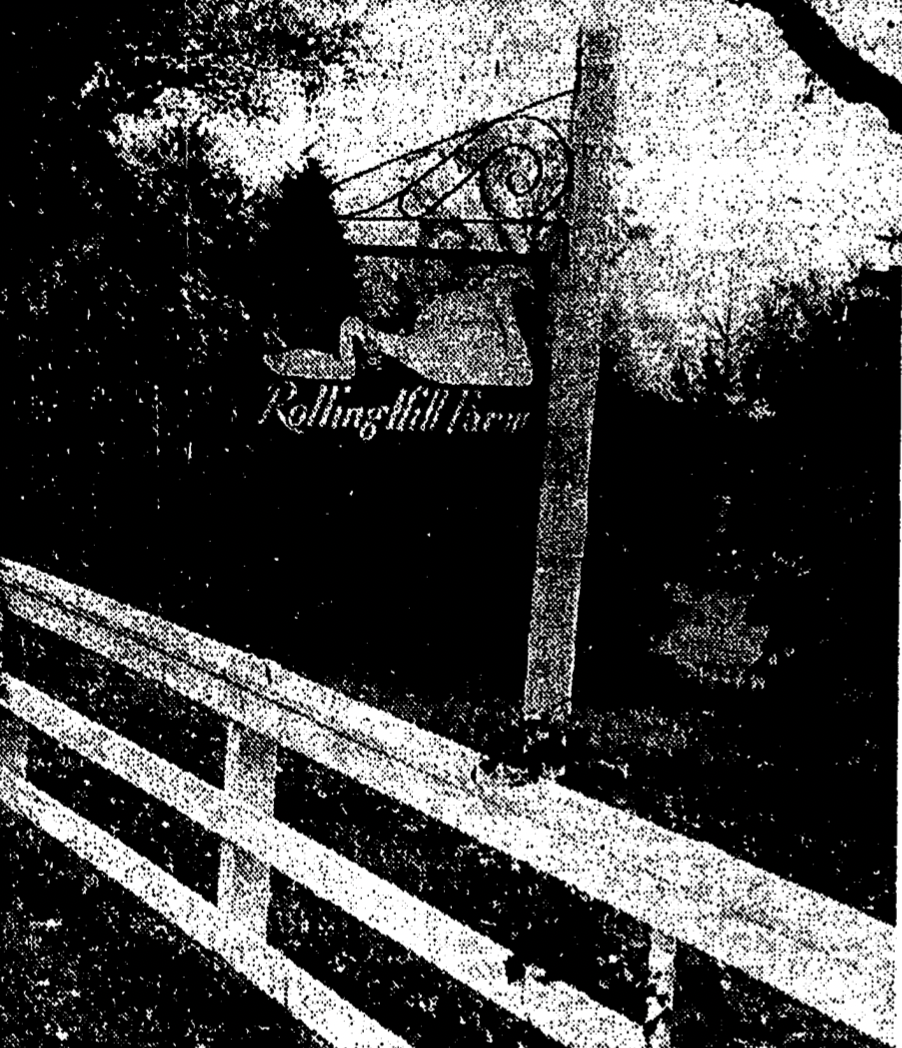
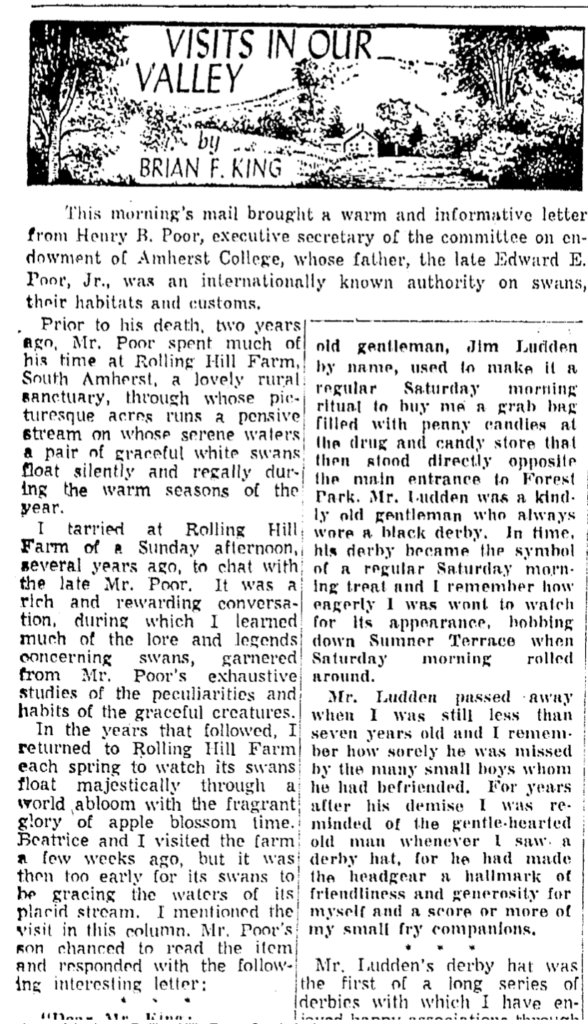
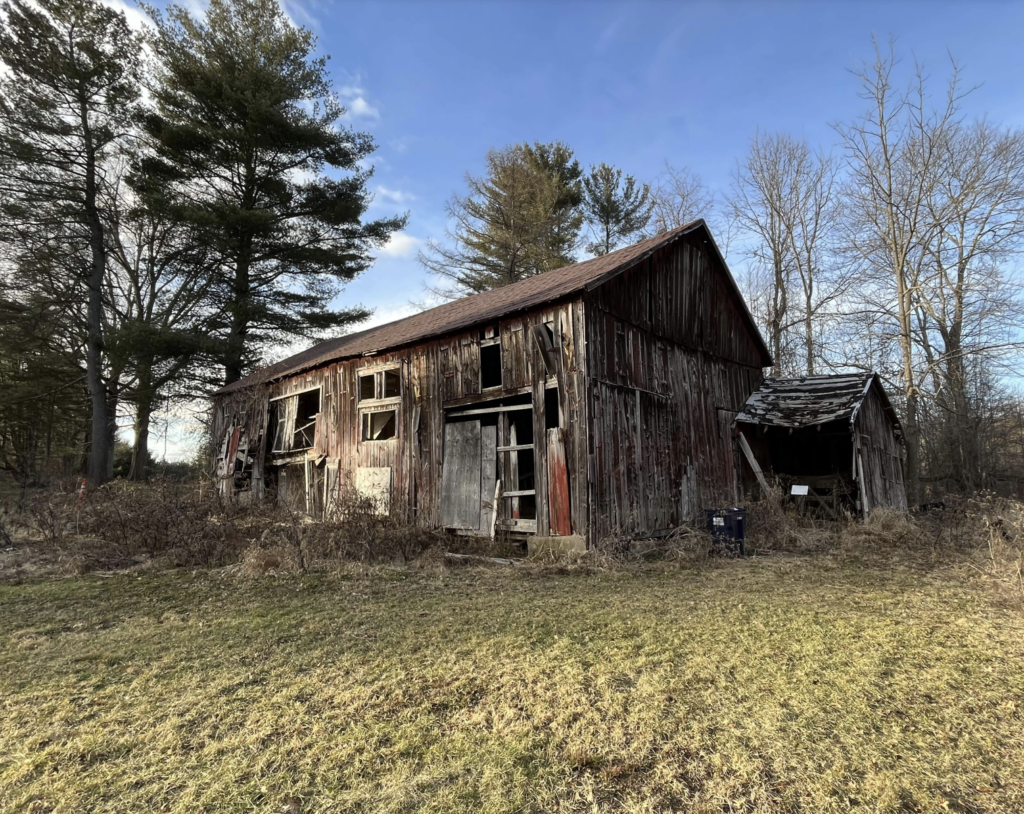
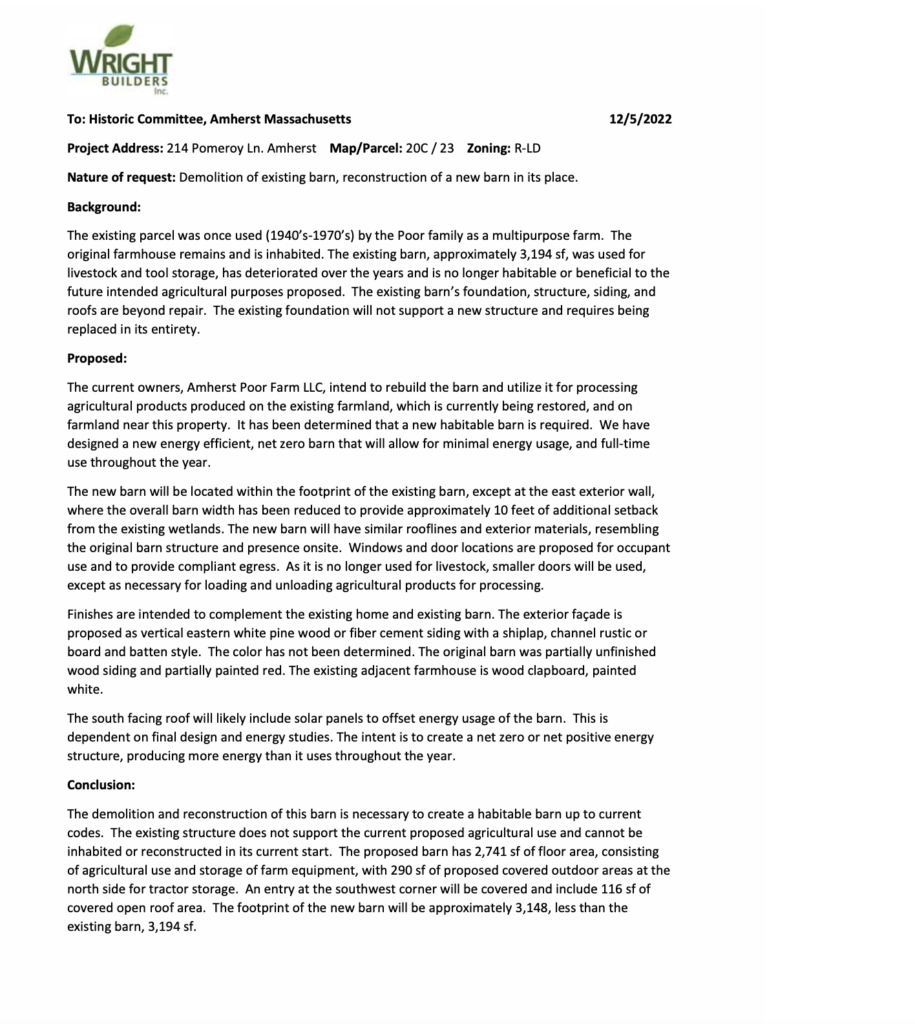

Below you can read what Historic Northampton – our nearby history museum – is doing to save, and rehabilitate an historic barn on their property. https://www.historicnorthampton.org/shepherd-barn-2020.html